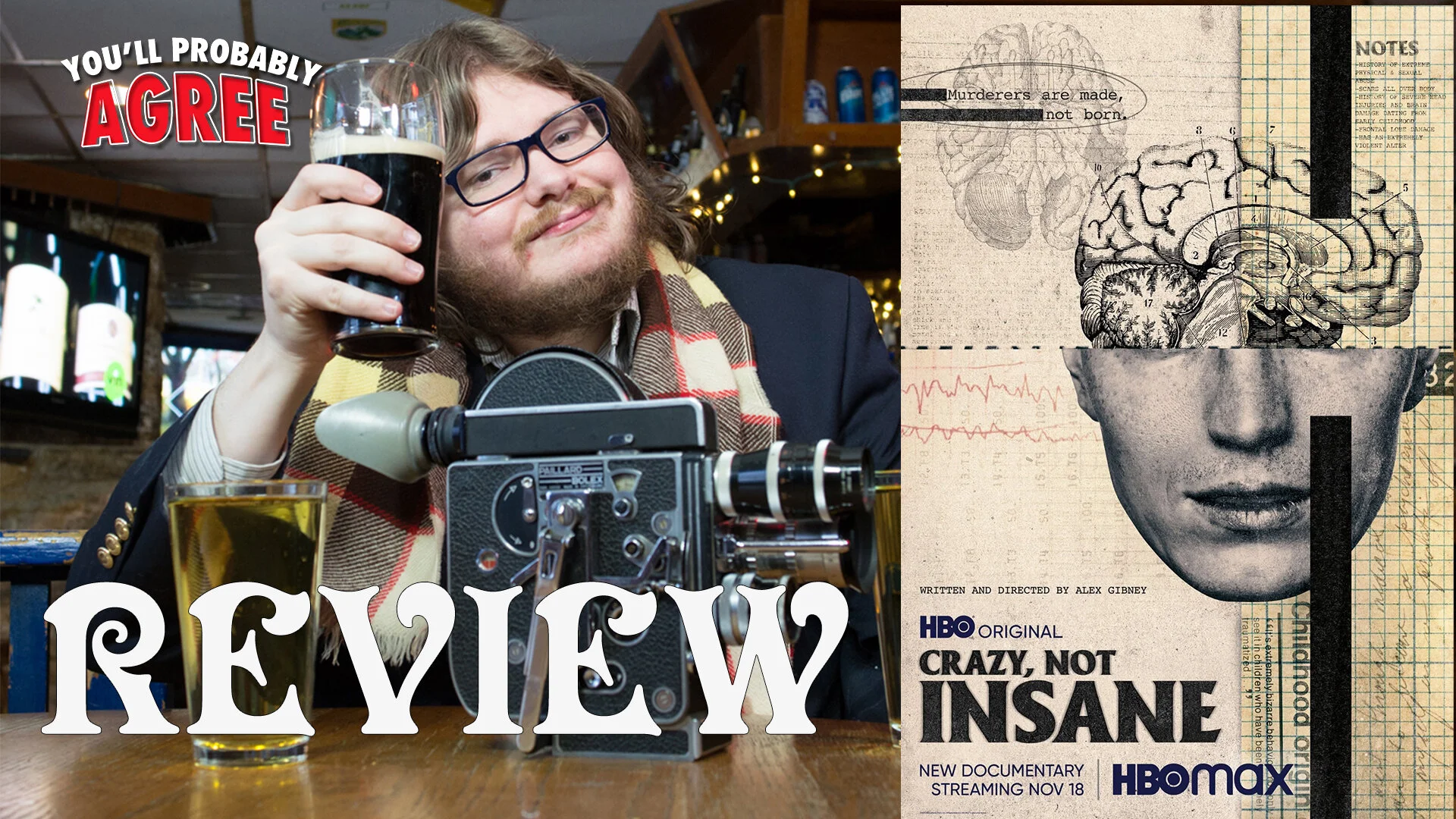'Crazy, Not Insane' asks us to understand the irrational
Always resting in the minority, I've never been the True Crime, serial killer fanatic that the rest of the world has always been fascinated with. What is so alluring about homicide? As distant as it may sound, murder is something that happens every day, rendering it dull to me. There is nothing to be learned from films about slayers other than our perverse fascination with the grisliness with the act of killing. Alex Gibney thankfully seems to share the same mindset as me. "Crazy, Not Insane" places its interest in the meaning behind the killing, not through the usual bland portrait of childhood neglect but rather the prisms of a criminal psychologist, Dorothy Otnow Lewis. Where we villainize those who have no redeemable traits, Dr. Lewis understands the problem with how the United States deals with criminality that leaves no room for empathy.
When we see Dorothy Lewis, she seems like everyone's mom. Her sweet exterior paints a beautiful portrait of the least likely person to study the criminally insane. Having examined murderers like Mark David Chapman, Arthur Shawcross, and Ted Bundy, it would be the assumption that Mrs. Lewis would cast harsh judgment upon these men. What she finds in almost all of these cases is the condition of split personality disorder. Their actions are monstrous beyond words, yet in her research, they aren't monsters. Monsters are never born; they are made. The thing all these individuals had in common was they were never one person. Alex Gibney is given access to possibly thousands of hours worth of footage from Dr. Lewis' work with her patients, confronting the audience with an uneasy subtext. What defines evil?
There's a level of understanding that's difficult for an audience to cope with upon viewing the tapes of Mrs. Lewis' subjects. Each one of these people didn't seem like the repulsive caricatures that we paint them as. What I found so fascinating was how much I was able to sympathize with them. As you may as well guess, many of them do suffer from childhood trauma. A variety of them were sexually abused at a young age or verbally and physically damaged by a direct family member shaping them into multiple beings. Some could be sweet as pie, others as evil as Satin. All of which rests within the mindset of one single physical being. One particular subject in the movie came across as one of the kindest, saddest people I have seen. I wanted to reach across the screen to give him a big hug, tell him that everything will sincerely be okay. The criminal justice system, however, as depicted in the film, has no room for compassion.
Throughout Doctor Lewis' career, she seemingly never has had a jury rule in her favor. America views its punishment towards the criminally insane the same way we burnt witches during the 1600s. The killers are meant to be condemned to death with absolutely no possibility of rehabilitation of any sort. Once the witch has been burnt, we needn't worry about the problem. Of course, that manner of punishment is futile since death's finality is a stimulant towards a killer's end goal. "If I'm to kill, then it only fits that I die for my actions." Alex Gibney and Dorothy Lewis don't mince words regarding their opposition to the death penalty, which I find admirable. Nothing annoys me more than an apolitical filmmaker. If you have a viewpoint, then say what you're thinking. Don't hide in a corner like a coward.
Gibney and Lewis offer an exceptional case against the death penalty. It's not only in the manner of saying that it's wrong, but how can we help those who seem beyond it? Asking that very question itself is a challenge. To help rehabilitate someone who has done the unspeakable may be considered ludicrous. I implore you to watch "Crazy, Not Insane" so you can understand that what I'm proposing is not so crazy after all. The United States is obsessed with the image of the strong man. By putting a serial killer to death, a lawyer or politician wins publicity points by being tough on crime. All of that strong exterior is weakness by setting society back, failing to have the psychological willpower to assist those we find deplorable.
Alex Gibney stylistically executes his narrative through brilliant pacing between reenacted animated cutaways, motion graphic still photos, and VHS tapes of serial killers offering the audience a glimpse into our souls through their flaws. Dorothy Lewis proposes, "Don't you ever wonder why you don't murder?" If given the circumstances, many of her patients were put under, it's difficult to say if you or I wouldn't kill when there's no hope in sight. At last, I have found a movie about murderers that I can understand instead of coldly judge.



